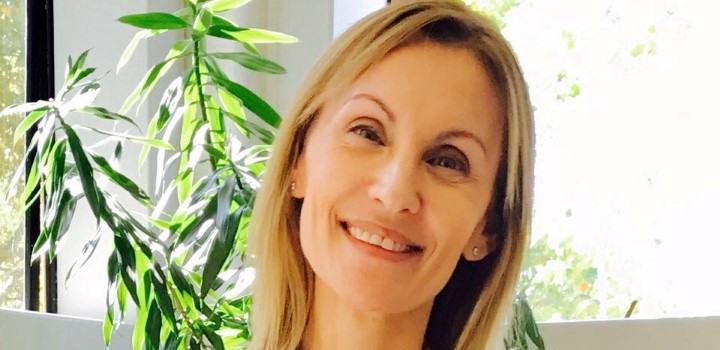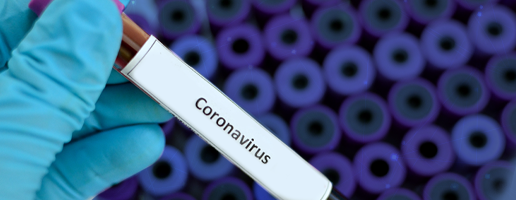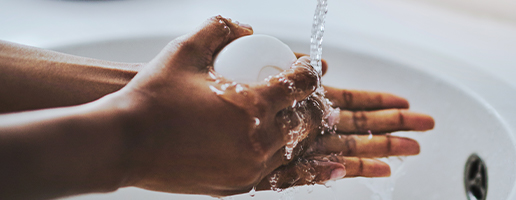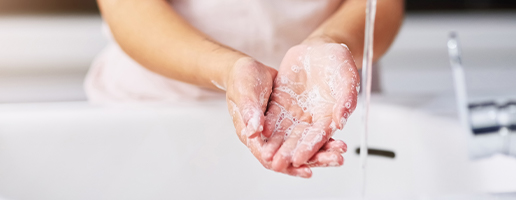How to cope with a longer lockdown: Advice from a clinical psychologist

Are you experiencing a whirlwind of emotions about the extended stay home period? Clinical psychologist Dr Colinda Linde says your feelings of loss are valid and shouldn’t be ignored if you want to move forward. Here’s how you can cope with COVID-19.
Dr Colinda Linde says it is completely normal for South Africans to be disappointed right now at having to stay home for longer to help contain the spread of COVID-19. President Cyril Ramaphosa announced on 9 April 2020 that the national lockdown, which was supposed to end on 16 April, had been extended to the end of April.
“I would hate to be our president at this stage, because he’s not doing this lightly. He must be aware of what’s at stake,” says Dr Linde, clinical psychologist and board member of the South African Depression and Anxiety Group (SADAG).
For many of us, lockdown means loss
“From the beginning, ‘lockdown’ has been a very difficult word for us to come to terms with, because it implies a loss of freedom, a loss of choice, a loss of movement and a loss of connection,” Dr Linde explains.
She adds that our president has a very difficult balance to maintain. “On the one hand there’s loss of life, and on the other hand there’s loss of psychological health, of feeling secure, and job and economic losses.”
How do we let ourselves grieve this loss and move forward?
Dr Linde says acknowledging our shared sense of loss at having to stay home for longer is the first step to healing. “We have to let ourselves grieve this loss,” she says. “Initially, there’ll be shocked denial in which we just can’t believe that the world is in the state it’s in. We’ve never experienced a pandemic like this before, we’ve never had uncertainty like this before … but we’ve also never experienced the selflessness and everybody uniting like this before.”
Dr Linde says most people will go through the usual five stages of grief – denial, anger, bargaining, depression and acceptance – but the important thing is not to get stuck in one stage.
When you start to feel angry or frustrated, Dr Linde recommends you do something physical. “Do exercise, pull out weeds in the garden, do a few push-ups, do something physical to get rid of some of that anger. Anger comes from feeling powerless and unable to move beyond this,” she says. “Do a micro task like washing the dishes. These are things we recommend for depression and panic: a distraction to get you back to normality. It works, I do all these things myself.”
Why is it important to acknowledge and accept your feeling? “If we get stuck in one of those stages of grief before we get closer to acceptance, we’re going to have a problem. From acceptance we can start to take our power back. We can start looking at: what can I control, what’s within my power, and what’s not within my power? And we can start planning and get some support.”
Dr Linde’s advice for coping with uncertainty
“Don’t ever discount the power of a hug; a proper 20-second bear hug,” she says. “If you have animals, just stroking a cat or a dog for a minute or two can cause strong physiological changes and is part of support.”
“Sometimes you need a good vent or a good cry in a safe place to let out all your fears,” she adds. “Try not to fall for the fake news, although sometimes it looks very authentic. It’s never been more important to get accurate information.”
Finally, she advocates having pockets of normality, like sitting down for supper as usual. “I’m in the same situation as you, and this is what I’ve been using to come to terms with COVID-19,” she says.
“What’s your part going to be?”
“We need to think of the big picture,” Dr Linde says. “Even if lockdown had ended on 16 April, there was always going to be a time where we readjust.”
On the bright side, the pandemic may well change society for the better. “We’ve all had to adjust to a simpler way of life and we’re looking at other people as human beings,” Dr Linde explains. In the end, it’s our attitude that’ll make the difference. “What’s your part going to be? Are you going to build up or are you going to break down?”
For more advice on how to cope with COVID-19, listen to Dr Linde’s podcast. Stay informed. Stay healthy.
Also listen to more of our COVID-19 podcasts for added insights into managing your life in the context of COVID-19.
All medical information found on this website including content, graphics and images, is for educational and informational objectives only. Discovery Health publishes this content to help to protect and empower all South Africans by promoting a better understanding of COVID-19.
Find a healthcare professional near you
Find a doctor or hospital near you online or by using the Discovery app.
Related articles

Outbreak of the 2019 novel coronavirus
The 2019 novel coronavirus (2019-nCoV) has caused an outbreak of fatal respiratory illness first detected in Wuhan, China. This is a completely new strain with no vaccines available. The best way to prevent infection is to avoid being exposed to this virus.

Understand the Novel Coronavirus (COVID-19) and prevent infection
No country is immune to the spread of the Novel Coronavirus - officially named COVID-19 by the World Health Organization (WHO). The outbreak has reached pandemic proportions and been declared a global public health emergency.

Novel Coronavirus - wash your hands of the threat
As toddlers, we learnt to wash our hands. But, did we ever master the skill to the extent that is needed to wash pathogens off our hands, and save lives? Multiple studies show people don't wash their hands at the right times, in the right way or for the right amount of time. We contaminate the things and people we touch with the germs we carry on our hands.